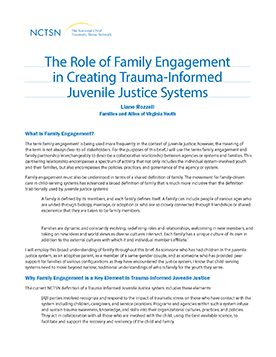
The Role of Family Engagement in Creating Trauma-Informed Juvenile Justice Systems
Outlines the role of family engagement in creating trauma-informed juvenile justice systems.
The following resources on Justice were developed by the NCTSN.

Outlines the role of family engagement in creating trauma-informed juvenile justice systems.
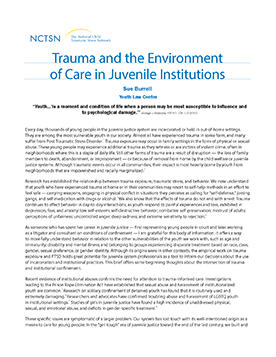
Outlines the environment of care in juvenile institutions.
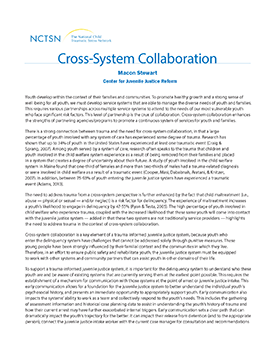
Outlines practice examples for continuity of care and collaboration across systems, a vital activity for youth involved in multiple service systems. This brief, written by Macon Stewart from the Center for Juvenile Justice Reform describes its Youth Practice Model.
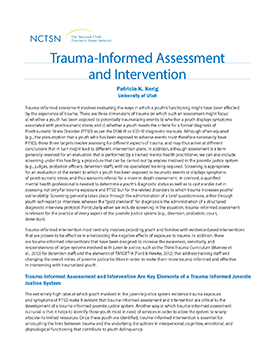
Outlines the importance of trauma-informed assessment and intervention in the juvenile justice system.
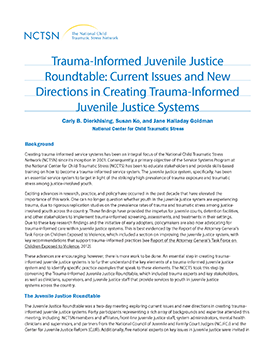
Provides an introduction to the NCTSN Trauma-Informed Juvenile Justice Roundtable.
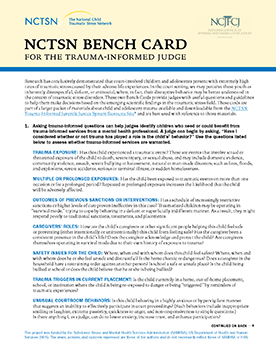
Provides judges with useful questions and guidelines to help make decisions based on the emerging scientific findings in the traumatic stress field. These bench cards assist judges and court-appointed professionals doing mental health assessment of children.
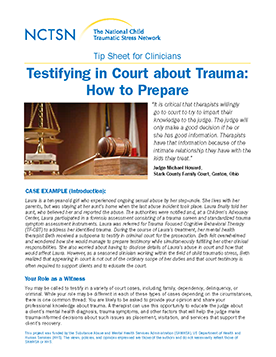
Offers guidance to clinicians called upon to testify as an expert witness for a client’s court case.
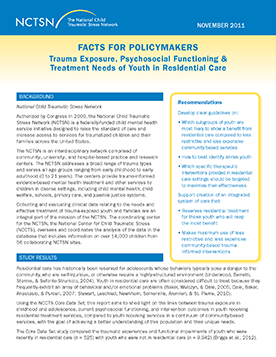
Describes child and adolescent trauma exposure and psychosocial functioning among NCTSN care recipients in residential care.

Highlights what ten things juvenile court judges should know to best meet the needs of traumatized children who come into their system.
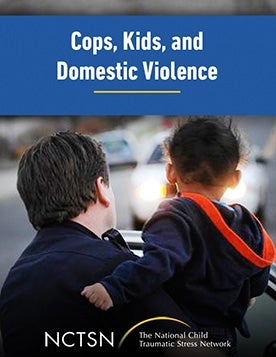
Describes the impact of domestic violence on children. This video provides law enforcement officers with concrete information about what they can do when responding to the scene of a domestic violence call.
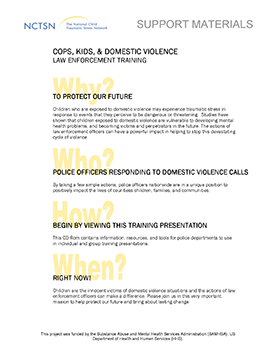
Provides links and resources for additional information to support the Cops, KIds, and Domestic Violence training video.
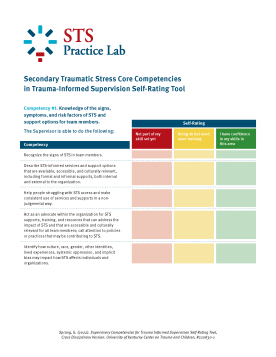
Is a self-rating tool that walks users through each of the competencies in STS cross-disciplinary version.